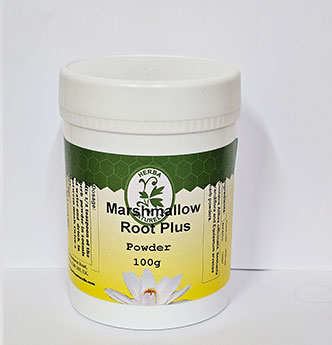Description
Common symptoms of allergic rhinitis include nasal discharge, sneezing, headache, itching of the eyes and nose, lethargy, sinus pressure, loss of taste and blocked nasal breathing. The inner membrane of the nasal passages becomes swollen and often unbearable.
Elderflower complex combines herbs to modulate the immune function and counteract symptoms associated with allergies. This blend contains herbs, which supports body’s natural immune system and reduce allergic response.
Stone root (Collinsonia canadensis): is commonly used for its benefits in supporting the respiratory system, particularly in strengthening the nostrils and sinus membranes. It is believed to have anti-inflammatory properties that reduce inflammation in the nasal and sinus passages, improving airflow. The herb is also thought to tone and strengthen the tissues of the mucous membranes, enhancing their resilience and reducing irritation. Additionally, stone root may improve circulation to the sinuses and nasal passages, promoting overall health and aiding in the healing of these membranes, making it beneficial for those with chronic sinus issues or nasal congestion.
Echinacea (Echinacea angustifolia (root)): is well-known for its ability to stimulant the immune system, thus being of potential benefit in avoiding and reducing the duration of infection. Echinacea has been shown to elevate white blood cell count and activity, enhance antibody activity, speed migration of white blood cells to areas of infection and boost interferon activity. Echinacea appears to block viral receptor sites on cell surfaces and reduce the ability of viruses to enter cells.
Elderflower (Sambucus nigra (flos): The berries and flowers are highly effective in treating colds, flu, bronchial disorders, ear infections and sore throats. They have strong anti-viral and anti-bacterial properties. They contain vitamin B and high quantities of vitamin C that increases immunity especially in times of cold and flu.
Thuja: (Thuja occidentalis): contains active constituents such as ‘diterpenes’, which possess anti-inflammatory and systemic stimulant properties. Thus it not only helps to reduce inflammatory conditions associated with viral infection but also helps to counteract symptoms associated with viral infection.
Horsetail (Equisetum arvense) Horsetail herb is known for its high silica content, which can support the strengthening and repair of connective tissues, including the smooth lining in the nostrils and sinus membranes. This herb helps promote the health of mucous membranes by improving their elasticity and structural integrity. Additionally, its anti-inflammatory properties can help reduce irritation and congestion in the sinuses and nostrils, providing relief and potentially improving overall respiratory health. Regular use of horsetail can aid in maintaining the strength and resilience of these delicate membranes, supporting better function and reducing discomfort.





Reviews
There are no reviews yet.